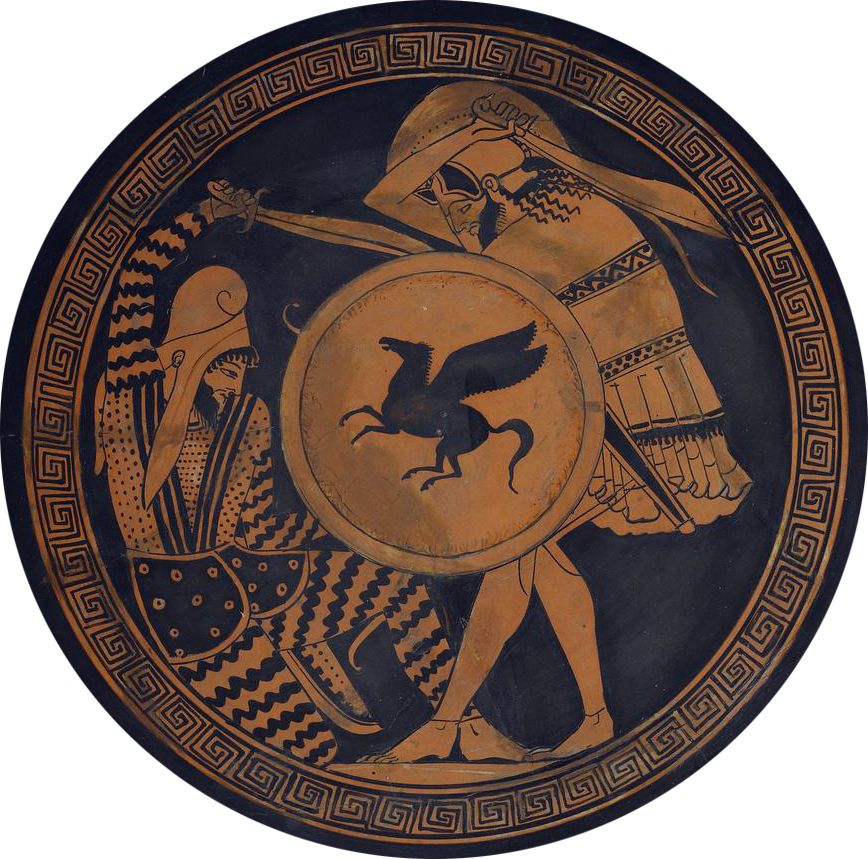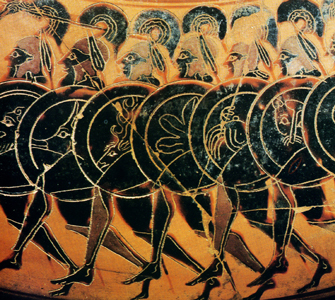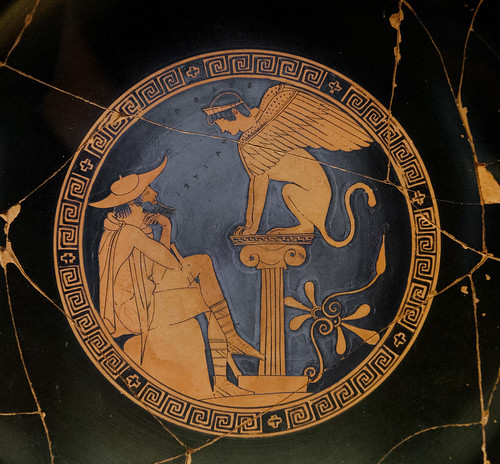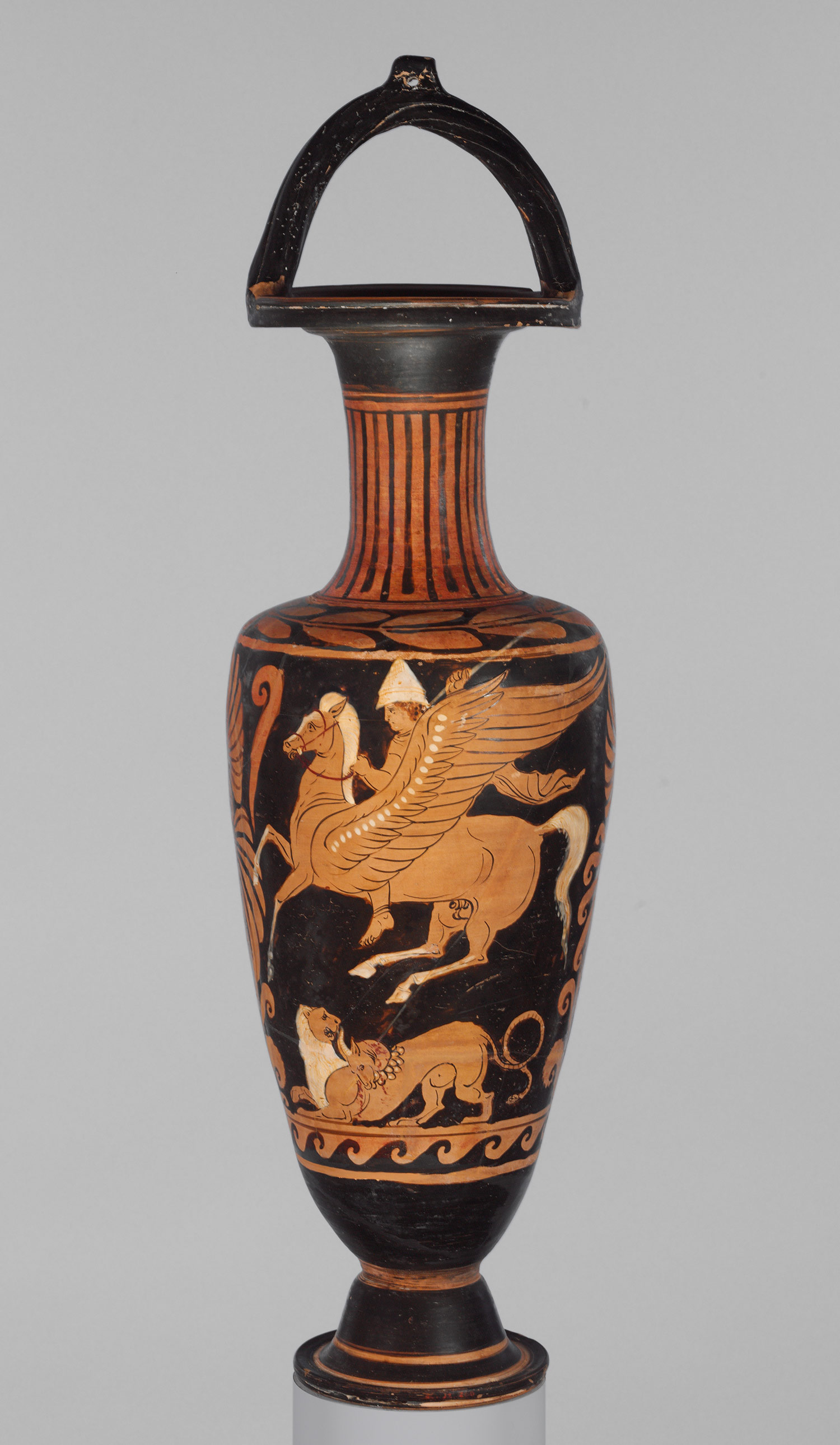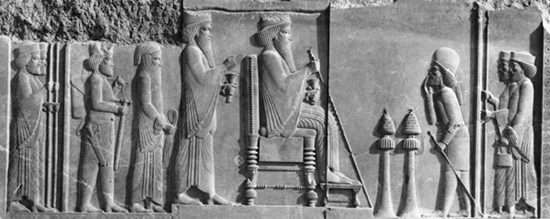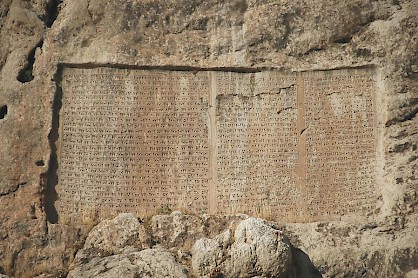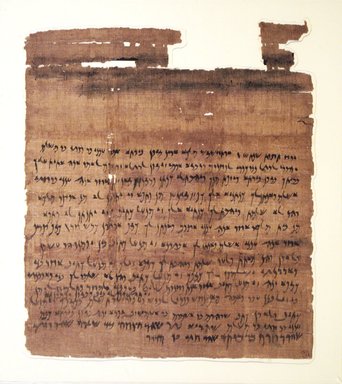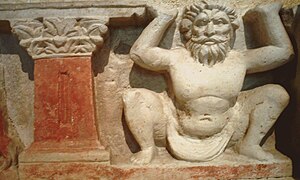Μηδίζω! THE WORLD OF ACHAEMENID HELLAS
CHAPTER 2:EIMI! or VARTAIYAIY!
EXCERPTS TAKEN FROM EXTRACTS FROM THE AFRICAN
HELLENO-AFRICAN RELATIONS
Now matters inevitably turn to that great crisis of the western Mediterranean, the exodos of Hellenes upon the capture of their homelands by the Persians. Great throngs of downcast men and women, clutching their babes, inevitably sought refuge with their kin in their old, powerful colonies. This, however, was no small matter for the Qarthastines; their defeat at the hands of Gelon had already cost them much in blood and treasure, and now the Hellenic communities were increasing their strength with the arrival of refugees. Syrakousai, already engorged with the spoils of Gelon’s victory, was swiftly becoming the master of the Western Mediterranean. Thus the crisis among the Hellenes became a crisis among the Qarthastines as well. But they were not hasty to action, being inclined to temperate behaviour and misliking rash acts. As we have already seen, the defeat at the hands of Gelon had weakened their powers and caused a revolution to depose the ailing monarchy. In addition, the Qarthastines were not characterised by their willingness to break treaties and oaths- their religious roles were taken with the most extreme seriousness, and their treaty with Gelon was thus considered unbreakable except in the direst of circumstances. The debate that ensued was about whether or not these circumstances were suitably dire. The great Bodmelqar, being of discriminating mind and keen empathy, had a more tolerant view of the arrival of the Hellenes.
“Now come the Hellenes from over the sea, cast out, as we were, from their homelands. Dwell we not in the ‘new city’? What of our old city? Conquered by Persians was our mother city, Ssur and its great ports all. Feel you not, my fellow Qarthastines, the pain which they undergo? Mark that our influence civilized the Hellenes, consider them not to be barbarians but civilized men. Have we no recourse but violence, are we not civilized? Will they not desire, as we do, to return to their homeland in a time of strength and deliver it from its occupiers? If so, recognise that we can live with them, but also recognise that the fire burns hot within them. Consider that they, being confronted by our armies that seek to expel them, would in great strength and fury descend upon us, expel us from all of Iqania, and leave affairs in an even worse state.”
His wise words, for a time, prevailed. The vigour of Qarthast was restored, and carefully nourished with wise policy and fatherly direction. But the final plunge into renewed conflict was only delayed, not forestalled. The refugees from the Aigaion Sea had thoroughly disrupted affairs in Italia and Sikelia, and for years the political intricacies of the Greek city-states transformed. We find from Herodotos the emergence of Megathenai, the western Athens, and witness its first virginal taste of dominance over its neighbours. We see the dances played out among the western Hellenes, deadly entanglements and warm embraces alike, against the magnificent setting of the western Mediterranean. But it is affairs specifically in Syrakousai that once again awoke fire and death. Gelon died in 477 BCE, having established Syrakousai and its clients as the sovereigns of all of the Hellenes of Sikelia, and Syrakousai herself as the Queen of Hellenic cities. But, Syrakousai being such a rich prize, and so recently flooded with migrants, was a nervous hive of plots and schemes. So long as Hieron, brother of Gelon, remained as ruler all restlessness was stilled. His army and navy helped guard the Italiotes from the arms of the Tyrsenoi, who were still in their archaic and semi-piratical days. Hieron was regarded by later African authors with more than a little respect. But when Hieron died, in 465 BCE, matters swiftly spiralled out of control. Rival members of the Deinomenid dynasty began to fight with one another for control of the throne, and demokratic revolutionaries fought to gain control over the city. This resulted in a fearsome breach in relations between the citizens of Megathenai and the Deinomenids, for the latter suspected the former of actively providing support to the demokrats.
Thus, with the major powers of the western Hellenes so disharmonious, the Qarthastines decided that the time was ready to strike back against their earlier injuries. In concert with the Tyrsenoi, anxious to avenge their defeat at the hands of Hieron, the Qarthastines appointed as commander of their expedition one Baalyaton, and furnished him with the finest warriors Qarthast could provide. ‘Baalyaton and his ten thousand’ would become a proverbial phrase among Africans, but not for the reasons he perhaps would have wished. As Herodotos tells us, a Hellenic merchant in Qarthast learned of these plans to invade, and warned the Hellenes in Sikelia of these goals. This excited grave alarm among all parties in Sikelia, and many in Italia equally. A party of the pro-demokratic Syrakousai desired to ally with the Qarthastines, in order to establish a demokratic regime, but Herodotos tells us this of their fate.
“This faction among the demokrats of Syrakousai had hoped to win over their fellows with adroit deployment of bribes, promises of magistracies, but also with exiling or if necessary murdering of their most intransigent opponents. But the larger part of the demokrats were patriotic, and in no short amount of time they discovered the plot of their former confederates. They expelled the greater part of the pro-Phoinike Syrakosioi, and thus established a fairer reputation among their fellow citizens.”
The cause of demokratic governance having been so advanced, a general amnesty was called between the demokrats and the sole remaining Deinomenid claimant, one Polyzalos. Many of the Hellenic cities of Sikelia remained under the rule of Syrakousai, though in many cases only nominally due to the civil war, but even in those cities who sided with Qarthast (in the hope of gaining increased power) their ruling tyrants found that the ordinary people of those cities were not in support of such actions. The general feeling along the Hellenes of Sikelia was that it was bad enough that their homeland was now a possession of the Persians, and were unwilling to countenance a similar position of the Qarthastines in Sikelia, no matter what promises the sons of Tyre had made to increase their specific cities’ position among the other Hellenes. It is in this, the newfound reticence among ordinary Hellenes in the west to remotely consider foreign dominance of their city-states, that we find the early Qarthastine Republic unprepared. For many of the Italiote states rallied to Syrakousai; Kyme, newly demokratic Rhegion, Kroton, Kaulonia, Metapontion, Taras, and not least among them Megathenai. For if Syrakousai was the Queen of the independent Hellenes, Megathenai was for now the King among them, and this was the first occasion in which both acted in concert.
If one wishes to consult more salacious or combat-drenched accounts of the wars of the Hellenes, they are free to do so. For the purpose of this account, focused as it is on the Qarthastines and not the innumerable doings of the Hellenes, we have developed sufficient context, and only need report that the Qarthastines lost the two-year war that ensued, and this led to the loss both of Sikelia in its entirety and the foundation of the Italiote League. Whilst on the surface, and particularly if Qarthast had sunk into obscurity, one would have been tempted to assume that this war would precipitate a dark age in Qarthastine affairs. Instead, it would be the making of Qarthast; free as they now were from being concerned over matters in Sikelia, their attention was free to wander elsewhere, whilst the increasingly powerful Hellenes on Sikelia served as a constant source of competition for prestige and opportunity, driving Qarthastine mercantile activity with real energy and purpose. Fortunately, this does not seem to have been accompanied by a loss in the noble Qarthastine virtue of multicultural tolerance; indeed, the height of cultural intercourse between Hellene and Qarthastine was not even remotely near, even including the long courtship between the children of Phoinikia and Hellas that we have already witnessed, and the era in which the Phoinikians lay the foundation of Hellenic culture, yet new heights of interconnection were to be achieved. But for now, all of this lay in the future. What we can say with surety is that the loss of Sikelia was as the removal of a millstone from the neck of Qarthast. It only behooves us to discuss the dealings of the archaic Tyrsenoi with Qarthast, and then we shall enter into the earliest stages of Africa’s classical era.
EXTRACT FROM HERODOTOS OF HALIKARNASSOS’ HISTORIA
THE FOUNDATION OF THE ITALIOTE LEAGUE
An inscription on an early 5th century BCE lead sling bullet found in a field in Sicily. It translates as 'Catch!'
It was not long ere the conclusion of the war with the Iapyges that the Italiotes were troubled; Hieron, famed ruler of Syrakousai, died. He had a number of sons and brothers, among which the most prominent had been Thrasyboulos, who engineered to have the other heirs of Hieron and Gelon displaced from their rightful inheritance and claimed the throne for himself. But this had two unforeseen consequences, as not only did the other Deinomenidai round upon their alleged king, desirous of their rightful position, but also his unpopularity increased the boldness and numbers of the demokratic party of the city. It has often been stated that the Megathenians had some specific relationship to this; namely that certain of the exiled Athenians, having been interested in cultivating more demokratic constitutions among the remaining potent Hellenic states to ensure friendly relations, had sent certain prominent Sophists among them to encourage the Syrakosioi to adopt feelings friendly towards the notion of a demokratic means of governance. However, others have stated that groups of citizens friendly to the idea of demokratia had already existed among the Syrakosioi even before the invasion of Darieos, let alone the days of Xerxes, that the notion of this form of government had already gained popularity among the Syrakosioi even before the reign of Gelon. Regardless of which of these is the truth, there was a demokratic party within the Syrakosioi who saw, with the dynastic strife among the Deionomenidai, their chance to launch a revolution in the city and establish their desired form of constitution in Sikelia’s greatest city.
But the Phoinikess, still smarting from their defeat at the hands of Gelon, now also saw their chance to launch an invasion of Sikelia and regain their former potency on the island. They sent embassies to both the Tyrsenoi and the Persians, who at that time remained their allies. From the Tyrsenoi, they received the following answer;
“
The children of Hellas grow too much in strength, and the children of Ouni are not prepared to see this continue. We will aid this endeavour with our triremes and our best warriors.”
In this way the Tyrsenoi indicated that they would join in an attack on the Hellenes in Italia and Sikelia. However, the Phonikes also sent missives to Xerxes, who they had aligned with during the invasion of Hellas by the Medes. This was the answer that they received.
“
Say to the Phoinikes thus; King Xerxes has not forgotten the words of alliance struck between the Medes and the Phoinikes, and he notes how the men of Karkhedon only grow concerned with attracting the attention of the Persians now that thou art desirous of new territories. Where were thy ships and men in the days of war in Hellas, where was your victory over the Hellenes of Sikelia? Where have your ships and best men been while the Akarnanioi, Kretans, Epeirotes, Aitolians and Korkyraiotes have continued to defy the words of King Xerxes? The King of Persia is not thy follower, ye are not the hegemon over King Xerxes, nor is King Xerxes a criminal that would conspire with ye to make a theft for thy benefit at no gain for myself. For it is plain that Sikelia is meant to be a gem snatched from its owners and placed in your diadem, with the Persian swords you ask for present perhaps merely as camp followers, or perhaps to be thrown first into battle? King Xerxes, King of the World, will treat kindness with kindness; thou shalt have not any soldiers of mine, no coins of mine, not a single spear that bears the name ‘Xerxes the son of Dareios’.”
In this manner was the alliance between the Phoinikes and the Medes dissolved. But nonetheless, the Phoinikes believed their forces, along with those of their Tyrsenoi allies, to be sufficient for the task at hand, trusting to the leadership of one Baliaton, and furnishing their appointed warriors in the finest and richest manner possible. The finest battalion in ornament was the most fearsome and disciplined among the Phoinikes of Karkhedon, anointed by their priests and dedicated to the Phoinikian Athena. The tale given to me by the priests in Karkhedon is that, in the time of their King Magon, he was approached by an oracle who bade him dedicate warriors to the service of Athena, and that she would render Karkhedon the same protection that she rendered to Kronos, who is considered the king of the Phoinikian gods and honoured in Karkhedon especially. Magon did not heed this oracle at first, but then the army of the Phoinikes lost an important battle against the Nomades despite having superiority of numbers and equipment. Visions of Athena among the Nomades were widely reported, and so Magon realised that the oracle had been truthful. Accordingly, he took a thousand of the finest and most experienced warriors of Karkhedon and swore them into the service of Athena, and made this sacred set of warriors a permanent institution in the city. The number was then increased to 2,000 at the time of Hamilkar, the same year as the expulsion of Hippias from Athens.
The expedition under the command of Baliaton was launched, with 200,000 men under his command, and a further 30,000 Tyrsenoi sailed south to the northern parts of Kampania, where they would gather their fellows from the cities of Kapue and other southern Tyrsenoi colonies and launch an attack on Hellenic cities such as Kyme and Neapolis. Confidence among them was high that the expansion of the Hellenes would be halted for all time. However, what they had not counted upon was the patriotism of the Hellenes among the city, and how it might be possible that a message might reach the Italiotes and Syrakousai before the invasion fleet did. But this one Apollophanion of Gela did achieve, disguising himself as an Aigyptios and stealing a small ship before sailing straight for Syrakousai. Thus the Hellenes were warned that an invasion was imminent, and then came the matter of what action to take. It seemed at first that Sikelia would be divided- many of the local tyrants of the various Sikelian poleis, seeking to become independent of the Deinomenidai, aimed to align with the Phoinikes and thus establish their own poleis as independent from the aegis of the line of Deinomenes. But now we come to the Italiotes once more- there was great alarm at the approach of the Tyrsenoi, particularly among those cities in Kampania who were close in proximity to the southernmost Tyrsenian cities. The question arose, among the greatest poleis among the Italiotes, what to do. The most important poleis among them at those time were the Megathenai, the Epizephyrian Lokrioi, and the Tarantinotes. It was agreed by all that the opinion of these three poleis would determine where the other Italiote poleis stood on the issue of imminent war, barring those cities already targeted by the Tyrsenoi. Among the Megathenai it was Perikles the son of Xanthippos, newly elected as strategos, and Aiskhylos the son of Euphorion, victor and poet and playwright, who held most sway among the Megathenai at this time, by virtue of their successful handling of the war with the Iapyges which this inquiry has already covered. Both of them were inclined to defend Syrakousai, and Sikelia, against the Phoinikes, albeit for different reasons- Perikles believed that standing up against the Phoinikes would continue to increase the power of Megathenai, whereas instead Aiskhylos believed strongly in defending any Hellene from barbarian occupation, wherever it proved possible.The two of them gathered a meeting of all of the Italiote poleis, and then Perikles gave them this speech, which had been composed jointly between the two men:
“
I shall begin with our ancestors, it is meet and correct that they be discussed at an occasion such as this one. There has never been a time in which they did not dwell our homelands which they passed down to us through their valour and strength of arms. And if our more remote ancestors deserve praise, much more do our own fathers, who added to their inheritance the lands which we now possess, but we have not yet won back our inheritance in full, the inheritance of the Hellenes. Yet we who are assembled here, who are in the prime and fullness of our lives, begun to carry out the work left to us. We have enriched our cities with all things, so that matters are sufficient for ourselves in peace and war. Of the military events by which our homelands were lost, by which cities were lost to the barbarian, I will not now discuss, for all here are familiar with the tales. Instead, it is seemly to remind ourselves of our deeds in recent times.
We, the free Hellenes, far from submitting to barbarians, have cast their attempts to subvert our liberty and freedoms aside, we have raised our shields and have not since lowered them. We, together, met foes Hellenic and barbarian. Whether they are Tyrsenoi raiders, Iapgyes battalions, or bloodthirsty Sabinoi, they have been utterly repulsed by our might. Our military does not enter rivalry with others. Our military does not copy our neighbours, but is a shining example to them. But yet, we have not attained our dream- to liberate Hellas, to end its occupation by the Persians and their king, to restore our homelands to their prior splendour and status of freedom. And there will be those among us who will ask ‘how can we liberate our homelands if we also engage in war with our full strength against people other than the Persians?’.
The rightful and dignified return of our motherlands is, as Hellenes, both our duty and our sacred vow. This shall not be in any way avoided or made less likely by our successful defence of other free Hellenes. It shall only be made more likely by our doing so, we shall grow in strength together by placing our lives in jeopardy via common cause, we shall increase the might of the free Hellenes by ensuring that not a single member among us is threatened by subjugation by barbarians.
We have witnessed the lands of our ancestors subjugated by foreigners in agony and anger as they seek to displace and hamper the rightful growth in the strength of the Hellenes. In Ionia, and Kypros, and Pamphylia, and Doris, and Aeolis, and Argolis, and Khalkidike, and Thessalia, and Attika, and Boiotia, and Euboia, and Samos, and Krete, and Rhodos, and Lakedaimonia, and Achaia, and Phokea, and Lokris, and Argolis have we seen the dominance of the barbarian take hold. And I say to you, free Hellenes, that this shall occur no more! Not one free city of the Hellenes shall fall to a barbarian so long as we, the Hellenes, draw our spears and breath. This shall be our sacred vow. No matter whether the barbarians come from Persis, or Karkhedon, or Tyrsenia, or the twisted lands of India, we shall draw our shields and stand alongside one another in noble and endless strength.
To you who are the sons and brothers of the departed, in all of the recent wars of the Hellenes, I see that the struggle to emulate them will be a trying one. For all praise the dead, and, however endless your virtue might be, I do not say to even approach them.The living have envy and rivalry to contend with, while those who are no longer in our path are honoured with a goodwill into which rivalry and mean-spiritedness does not and cannot enter. And, if I am to speak of womanly virtues to those of you who will henceforth be widows, let me sum them up in one short admonition: To a woman not to show more weakness than is natural to her sex is a great glory, and not to be talked about for good or for evil among men.”
This, then, amid all the speeches given by worthy men in the assembly of the free Hellenes, was the inspiration which, by debate but also fine endeavour, the first Italiote League was created, which has also been called the League of Kaulonia for the city in which the oaths were first sworn. As members were sworn the Megathenai, the Krotoniatai, the Tarantinotes, the Syrakosioi and all the poleis under its control, the Kymaiotes, the Rheginotes, the Lokrioi, the Medmaioi, the Terinaioi, the Metapontinotes, the Neapolitai, the Kauloniatai, the Siritai, the Temesaioi, and the Hipponiatai.
